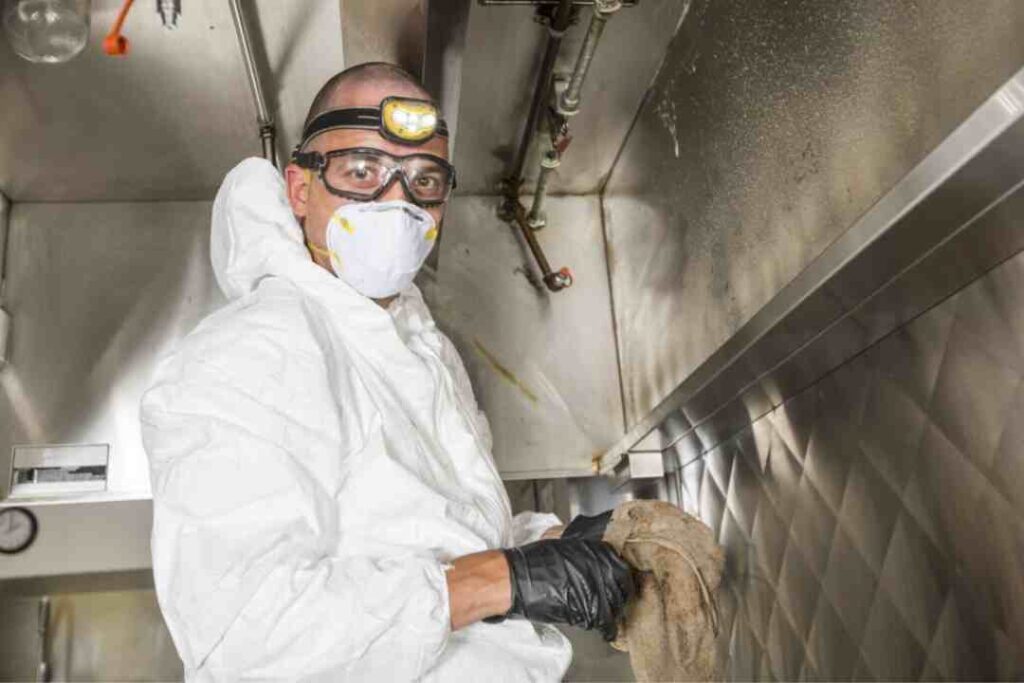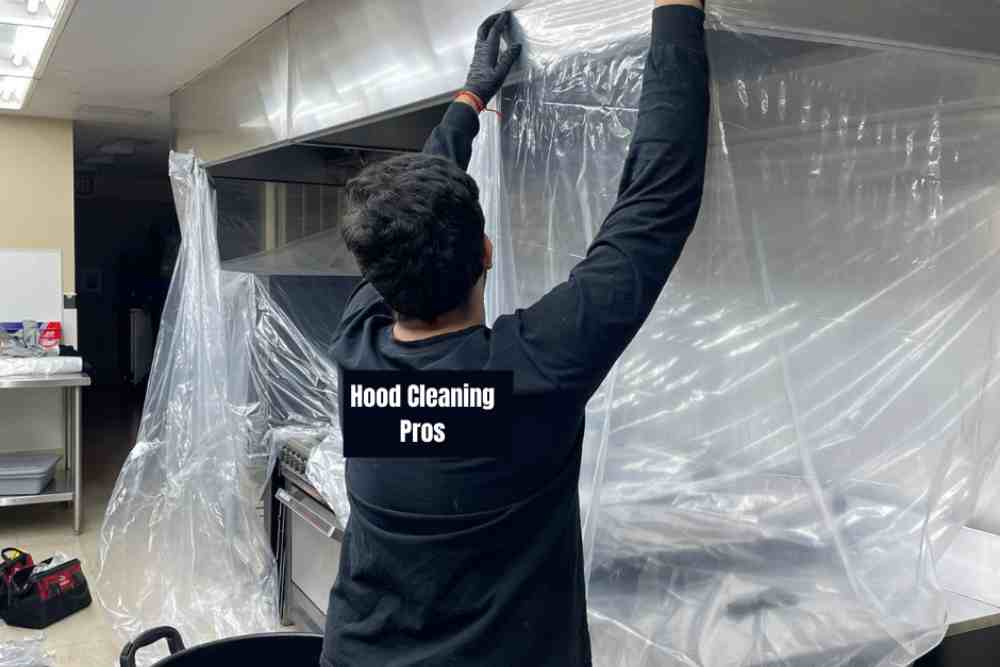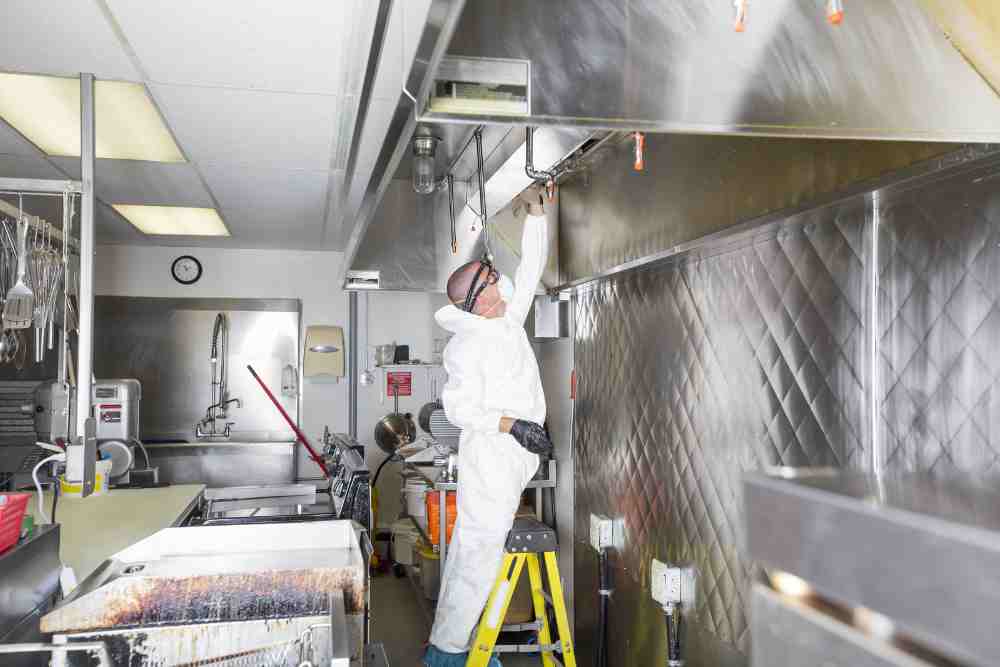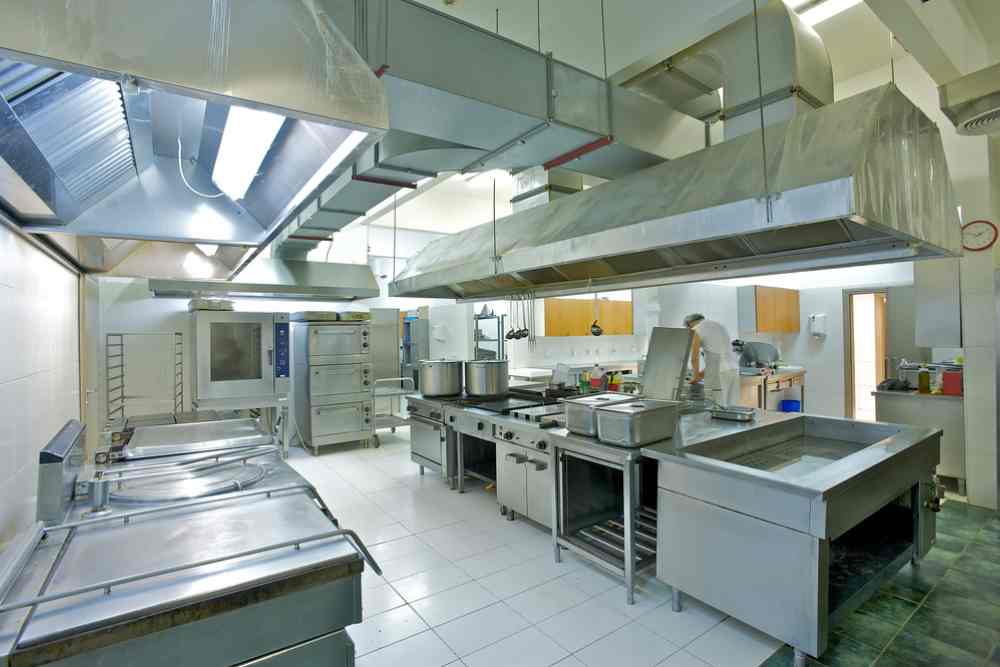Table of Contents
Hood Cleaning to Stop Grease Fires
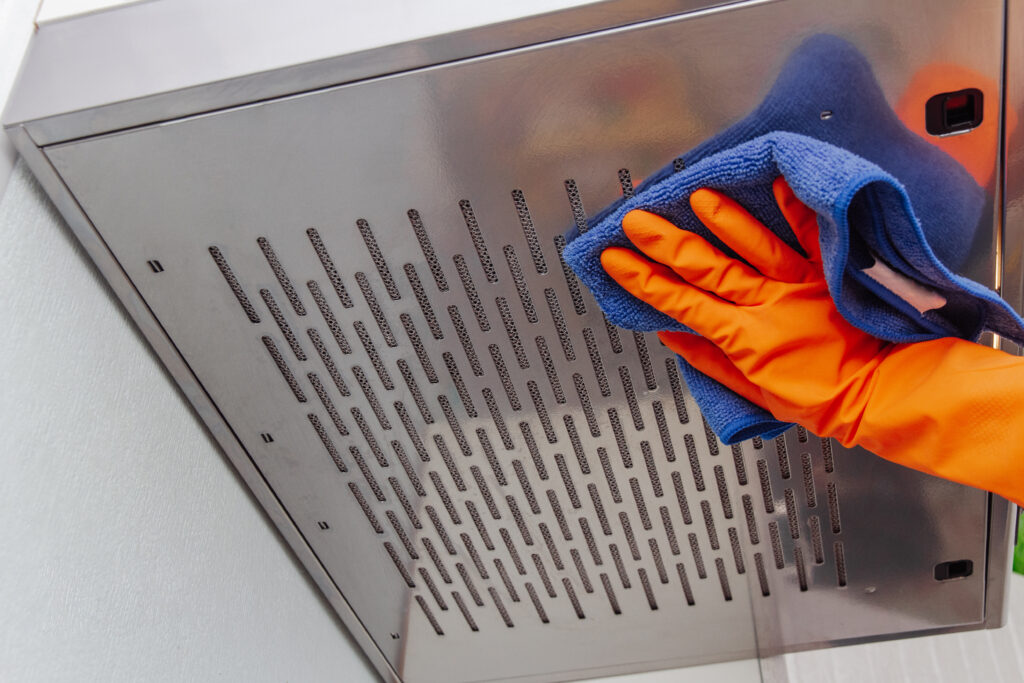
Grease fires are a serious hazard in commercial kitchens, causing significant damage and posing a threat to the safety of employees and customers. One effective way to prevent grease fires is through regular hood cleaning. Hood cleaning involves the thorough cleaning of kitchen exhaust systems, including the hood, filters, ducts, and fans. In this article, we will explore the importance of hood cleaning, the risks associated with grease fires, and the benefits of regular maintenance. We will also provide valuable insights, examples, case studies, and statistics to support our points.
The Importance of Hood Cleaning
Hood cleaning plays a crucial role in preventing grease fires in commercial kitchens. The hood acts as a primary defense mechanism by capturing and removing grease-laden vapors, smoke, and odors from the cooking area. Over time, these substances accumulate in the hood and its associated components, such as filters and ducts. If not properly cleaned, the buildup of grease can become a fire hazard.
Regular hood cleaning is essential to maintain the efficiency and functionality of the exhaust system. When the hood and its components are clean, they can effectively capture and remove grease particles, preventing them from accumulating in the system. This not only reduces the risk of grease fires but also improves air quality, reduces odors, and enhances the overall cleanliness of the kitchen.
The Risks of Grease Fires
Grease fires are a significant concern in commercial kitchens due to their potential to cause extensive damage and harm to individuals. When grease accumulates in the exhaust system, it becomes highly flammable. A small spark or high heat can ignite the grease, leading to a fire that can quickly spread throughout the kitchen.
Grease fires are particularly dangerous because they burn at extremely high temperatures and can be difficult to extinguish. They can cause severe burns, property damage, and even loss of life. According to the National Fire Protection Association (NFPA), an estimated 7,410 restaurant fires occur annually in the United States, resulting in an average of $165 million in property damage.
The Benefits of Regular Maintenance
Regular hood cleaning and maintenance offer numerous benefits to commercial kitchens, including:
- Fire Prevention: By removing grease buildup, regular hood cleaning significantly reduces the risk of grease fires.
- Compliance with Regulations: Many jurisdictions have specific regulations and codes that require regular hood cleaning to ensure the safety of employees and customers. Compliance with these regulations is essential to avoid penalties and maintain a safe working environment.
- Improved Air Quality: Hood cleaning helps remove smoke, odors, and other pollutants from the kitchen, improving the overall air quality and creating a more pleasant environment for employees and customers.
- Enhanced Efficiency: A clean hood and exhaust system operate more efficiently, ensuring proper ventilation and preventing the buildup of heat and humidity in the kitchen.
- Extended Equipment Lifespan: Regular maintenance and cleaning of the hood and its components help prolong the lifespan of the equipment, reducing the need for costly repairs or replacements.
Case Studies and Statistics
Several case studies and statistics highlight the importance of hood cleaning in preventing grease fires:
Case Study 1: In 2018, a restaurant in California experienced a devastating grease fire that caused over $1 million in damages. The fire started in the kitchen exhaust system due to a buildup of grease. The incident could have been prevented with regular hood cleaning and maintenance.
Case Study 2: A study conducted by the NFPA found that 59% of restaurant fires involved cooking equipment. Of these fires, 21% were caused by the ignition of food or cooking materials, including grease. Regular hood cleaning can significantly reduce the risk of such fires.
Statistics:
- According to the NFPA, cooking equipment was involved in 30% of all reported non-residential structure fires between 2014 and 2018.
- Grease fires accounted for 20% of all restaurant fires reported to fire departments in the United States between 2014 and 2018.
- The majority of restaurant fires (64%) were caused by cooking equipment, including ranges, grills, and fryers.
For professional kitchen exhaust hood cleaning services in Ontario, visit Ontario Hood Cleaning.
Frequently Asked Questions
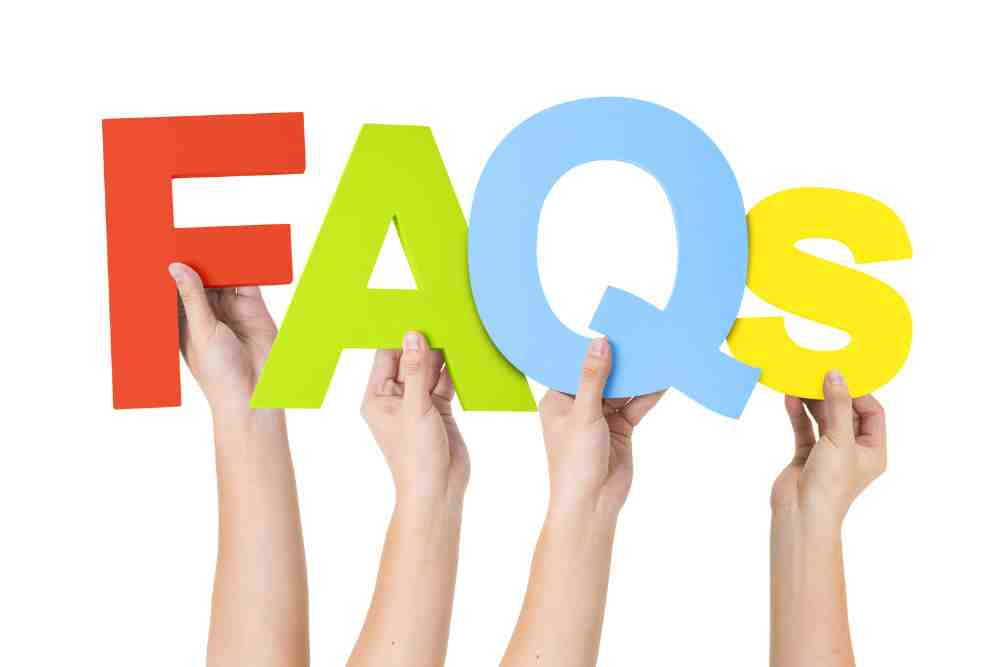
Q1: How often should hood cleaning be performed?
A1: The frequency of hood cleaning depends on the volume of cooking and the type of food being prepared. In general, it is recommended to have hood cleaning performed every three to six months. However, high-volume kitchens or those cooking with a lot of grease may require more frequent cleaning, such as every one to three months.
Q2: Can I clean the hood myself?
A2: While it is possible to clean the hood yourself, it is highly recommended to hire professional hood cleaning services. Professionals have the necessary equipment, expertise, and knowledge to thoroughly clean the hood and its components, ensuring compliance with regulations and minimizing the risk of grease fires.
Q3: How long does hood cleaning take?
A3: The duration of hood cleaning depends on the size of the kitchen exhaust system and the level of grease buildup. On average, a thorough hood cleaning can take anywhere from two to six hours. However, larger systems or heavily soiled hoods may require more time.
Q4: What are the signs that my hood needs cleaning?
A4: Some signs that indicate the need for hood cleaning include visible grease buildup on the hood and filters, persistent odors in the kitchen, reduced airflow, and increased cooking times. If you notice any of these signs, it is essential to schedule a professional hood cleaning as soon as possible.
Q5: Can I save money by skipping hood cleaning?
A5: Skipping hood cleaning to save money is a risky decision. The cost of regular hood cleaning is significantly lower than the potential expenses associated with a grease fire, such as property damage, insurance claims, and business interruption. Investing in hood cleaning is a proactive measure that helps protect your business, employees, and customers.
Summary
Hood cleaning is a critical aspect of preventing grease fires in commercial kitchens. Regular maintenance and cleaning of the hood and its associated components significantly reduce the risk of grease buildup and subsequent fires. By investing in professional hood cleaning services, businesses can ensure compliance with regulations, improve air quality, enhance efficiency, and prevent costly damages. The statistics and case studies presented in this article highlight the importance of hood cleaning in maintaining a safe and functional kitchen environment. Don’t wait until it’s too late – schedule regular hood cleaning.
For professional kitchen exhaust hood cleaning services in Ontario, visit Ontario Hood Cleaning.


